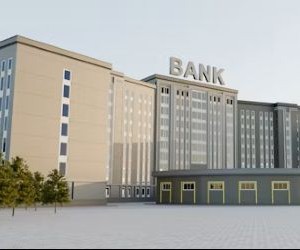DIFFERENCES BETWEEN URBAN AND RURAL PROPERTIES
Discover how understanding urban and rural properties can revolutionize your real estate portfolio.

Characteristics of Urban Properties
Imagine Manhattan: skyscrapers that almost touch the sky and cafes on every corner. Urban properties are the essence of the metropolitan hustle, where every square inch holds a value affordable to only a few top executives or aspiring real estate magnates.
These properties are characterized by:
Strategic Location: Immediate and convenient access to public transportation, shopping centers, and other urban life amenities.
High Demand: Attractive for professionals and businesses, driving rental values upward.
Spatial Restrictions: Fewer square feet per dollar due to the high concentration of population.
Let's practice the theory. In 2020, the New York market demonstrated that in times of madness, people still prefer skyscrapers over the deserted. It turns out there is something irresistible about a good view of the Big Apple, even if it comes with noisy neighbors.
Characteristics of Rural Properties
Now let's switch to something more relaxing: imagine an estate in Tuscany or a country house in England. Rural properties offer a break from the chaotic urban life; a paradise for those who value space and tranquility.
These properties stand out for:
Land Extension: Enormous amount of space, ideal for agriculture or expansive residences.
Limited Connectivity: Less access to amenities and transportation networks.
Gradual Appeal: A growing desire for pandemic escape, leading to increased interest.
With examples like the current trends in the rural market near San Francisco, where families are purchasing rural properties to grow their own food, it is clear that rustic is on the rise.
Perhaps, then, should Manhattan take lessons on how to cultivate a rooftop garden?
Understanding the Urban Property Market
Entering the world of urban properties, akin to jumping into a rodeo, requires consideration of certain critical factors. First, the ubiquitous traffic: yes, traffic, not just of cars but of people wanting to live here. A savvy trader knows that such demand is a constant source of income (if they play their cards right with renting or reselling).
Important considerations include:
Population growth: Is the area experiencing a demographic boom? It's a positive indicator for investments.
Land price: In major cities, this can be as challenging as finding a unicorn.
Access to technology: Smart buildings are the trend, making weak WiFi as frustrating as having Internet Explorer as a default browser.
Evaluating the Rural Property Market
On the rural side, the market operates at a different pace. Think big lands, even bigger dreams, and occasional prickles in the real estate world. Here are some tips worthy of a true wolf of the grasslands:
Vital aspects include:
Agricultural viability: There's no better way to live the countryside nostalgia than with arable land.
Proximity to urban centers: A key balance between isolation and accessibility.
Climatic factors: Winters tougher than a marine boot camp? It might not be for everyone.
Whether you're looking at farms in Montana or land elsewhere, remember that rural markets offer peace and opportunity, provided you're willing to look beyond the obvious.
The Promise of Urban Properties
If there's one thing urban property does well, it's offering a more instant return on investment than a meme stock in euphoria. The buzz of the city brings with it a constant flow of potential tenants. Why resist? With a premium location, you can see annual growth in your portfolio, like those speculative cryptocurrency charts.
Aspects to consider:
Rapid Return: Rental income can be high impact.
Capital Appreciation: Location is key, but beware, the shine may lose its luster.
Regulatory Challenges: Where there's politics, there are problems... and perhaps a small bite from regulators.
Opportunities in Rural Land
On the other hand, the allure of rural real estate lies in its long-term potential. It's not for the impatient, but those properties that carry the wind to the mill can become true profitability wonders. The famous Warren Buffett, who values eternity over the now, would surely approve of the patient approach.
Diversification: From ranches to vineyards, the uses of land can surprise.
Reurbanization Opportunities: Proper expansion can transform old land into new communities.
Sentimental Investment: Properties that touch the heart... and call for luxury investment.
Who needs the constant hustle when you can hear your heart beating in the tranquility of the countryside? As the wise Mark Twain suggested, "Buy land; they're not making it anymore."









